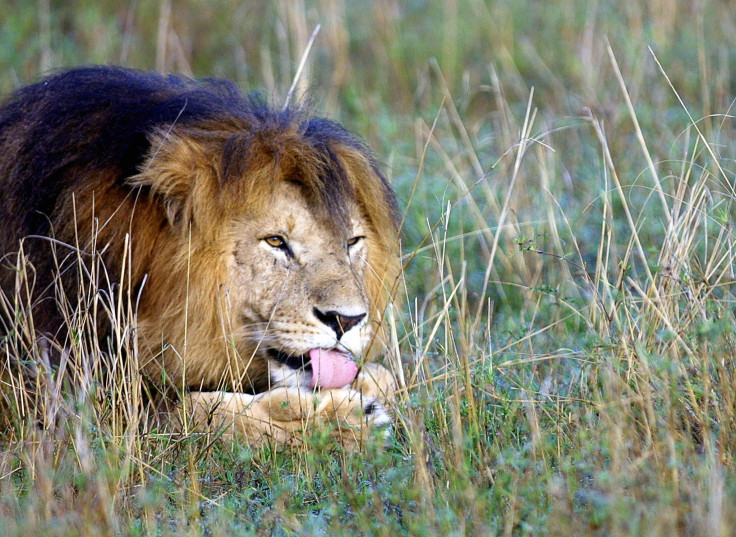Cecil The Lion: Jane Goodall Declares She Has 'No Words' To Express Her 'Repugnance' Over Lion's Death

As the public outcry continues to grow over the death of Cecil the Lion, a Zimbabwean lion famous for his affability who was killed by a dentist from Minnesota on a hunting trip, renowned primatologist and conservationist Jane Goodall released a statement Wednesday condemning the hunter's actions and the reckless killing of the lion. Goodall said that she found it "incomprehensible" that anyone would want to kill an endangered animal, and added that she had "no words to express" her "repugnance."
"I was shocked and outraged to hear the story of Cecil, Zimbabwe’s much loved lion," Goodall said. "Only one good thing comes out of this – thousands of people have read the story and have also been shocked."
Cecil was a popular attraction among visitors to Hwange National Park in Zimbabwe and was known for his distinctive black mane. Walter Palmer, an American dentist and frequent big-game hunter, paid roughly $54,000 to hunt a lion earlier this month, according to the New York Times. After a local farmer and a professional hunter lured Cecil the lion out of the sanctuary with the scent of meat, Palmer embarked on a two day hunt before shooting the lion with a crossbow.

The Zimbabwean farmer and professional hunter appeared in court Wednesday on poaching charges for their role in killing Cecil. While activists have pushed for Palmer to be charged for poaching in both the United States and Zimbabwe, Palmer has said that he thought the hunt was conducted legally.
“I had no idea that the lion I took was a known, local favorite, was collared and part of a study, until the end of the hunt,” Dr. Palmer said, according to the New York Times. “I relied on the expertise of my local professional guides to ensure a legal hunt.”
This beautiful boy was killed for fun. #bantrophyhunting http://t.co/E7qCXZVoA8 pic.twitter.com/jd1E8UAH6k
— Ricky Gervais (@rickygervais) July 27, 2015Zimbabwean conservationists have said that the death of Cecil will further hurt wildlife tourism in a nation struggling with illegal poaching.
"A lot of people travel long distances coming to Zimbabwe to enjoy our wildlife and obviously the absence of Cecil is a disaster," said Emmanuel Fundira, president of the Safari Operators Association of Zimbabwe, to reporters in the capital, Harare, according to the Guardian.
Read Goodall's full statement below:
I was shocked and outraged to hear the story of Cecil, Zimbabwe’s much loved lion. Not only is it incomprehensible to me that anyone would want to kill an endangered animal (fewer than 20,000 wild lions in Africa today) but to lure Cecil from the safety of a national park and then to shoot him with a crossbow...? I have no words to express my repugnance. He was not even killed outright, but suffered for hours before finally being shot with a bullet. And his magnificent head severed from his wounded body. And this behaviour is described as a “sport." Only one good thing comes out of this – thousands of people have read the story and have also been shocked. Their eyes opened to the dark side of human nature. Surely they will now be more prepared to fight for the protection of wild animals and the wild places where they live. Therein lies the hope.”
© Copyright IBTimes 2025. All rights reserved.






















